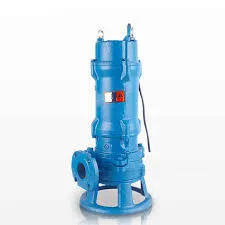Greek
- Afrikaans
- Albanian
- Amharic
- Arabic
- Armenian
- Azerbaijani
- Basque
- Belarusian
- Bengali
- Bosnian
- Bulgarian
- Catalan
- Cebuano
- Corsican
- Croatian
- Czech
- Danish
- Dutch
- English
- Esperanto
- Estonian
- Finnish
- French
- Frisian
- Galician
- Georgian
- German
- Greek
- Gujarati
- Haitian Creole
- hausa
- hawaiian
- Hebrew
- Hindi
- Miao
- Hungarian
- Icelandic
- igbo
- Indonesian
- irish
- Italian
- Japanese
- Javanese
- Kannada
- kazakh
- Khmer
- Rwandese
- Korean
- Kurdish
- Kyrgyz
- Lao
- Latin
- Latvian
- Lithuanian
- Luxembourgish
- Macedonian
- Malgashi
- Malay
- Malayalam
- Maltese
- Maori
- Marathi
- Mongolian
- Myanmar
- Nepali
- Norwegian
- Norwegian
- Occitan
- Pashto
- Persian
- Polish
- Portuguese
- Punjabi
- Romanian
- Russian
- Samoan
- Scottish Gaelic
- Serbian
- Sesotho
- Shona
- Sindhi
- Sinhala
- Slovak
- Slovenian
- Somali
- Spanish
- Sundanese
- Swahili
- Swedish
- Tagalog
- Tajik
- Tamil
- Tatar
- Telugu
- Thai
- Turkish
- Turkmen
- Ukrainian
- Urdu
- Uighur
- Uzbek
- Vietnamese
- Welsh
- Bantu
- Yiddish
- Yoruba
- Zulu
Telephone: +86 13120555503
Email: frank@cypump.com
Νοέ . 12, 2024 19:24 Back to list
ejector pumps
Understanding Ejector Pumps An Overview
Ejector pumps are a vital component in many industrial and residential applications, known for their ability to move fluids effectively without relying on mechanical impellers. They operate using the principle of fluid dynamics, specifically utilizing a high-speed jet of water or air to create a vacuum that draws in additional fluid. This unique operational mechanism makes ejector pumps an appealing choice for various situations, particularly in areas where traditional pumping methods may be less effective.
How Ejector Pumps Work
To understand how ejector pumps function, it's essential to grasp the fundamental principle behind them. An ejector pump typically consists of a nozzle, a mixing chamber, and a diffuser. The process begins when a working fluid (usually water or steam) is expelled through the nozzle at high velocity. As this fluid exits the nozzle, it creates a low-pressure zone within the mixing chamber, effectively generating a vacuum.
This vacuum then draws in the surrounding liquid, which becomes mixed with the working fluid. The combined fluid flows through the diffuser, where it gradually slows down, allowing for an increase in pressure. This pressurized mixture can then be discharged through a designated outlet, effectively transporting the fluid over varying distances and heights.
Applications of Ejector Pumps
Ejector pumps are versatile tools found in various applications, ranging from wastewater treatment to manufacturing processes. One of their primary uses is in sewage and wastewater systems, where they facilitate the movement of solids and liquids through pipelines. Ejector pumps are particularly valuable in locations where gravity drainage is not viable, helping to transport waste efficiently.
In industrial settings, ejector pumps are often utilized in chemical processing, where they can handle corrosive substances that may damage traditional pumps. Their simple design and reduced moving parts also lead to lower maintenance costs, enhancing operational efficiency in manufacturing environments.
ejector pumps

Additionally, ejector pumps are used in well-jetting applications, where they can help develop and clean wells by effectively displacing sand and other debris
. In some cases, they are also employed in HVAC systems for condensate removal, ensuring that moisture is efficiently drained away from cooling units.Advantages of Ejector Pumps
There are several advantages to using ejector pumps over conventional pumping methods. Firstly, their ability to handle a mixture of solids and liquids makes them ideal for environments where debris is present. Traditional pumps often struggle with solids, leading to clogs and operational interruptions. In contrast, ejector pumps can manage these mixtures more dynamically, leading to uninterrupted service.
Moreover, ejector pumps are known for their energy efficiency. Since they rely on the kinetic energy of a working fluid, they can often operate with minimal energy input compared to mechanical pumps. This efficiency not only reduces operational costs but also contributes to environmental sustainability by lowering energy consumption.
Maintenance is another area where ejector pumps excel. With fewer moving parts compared to mechanical pumps, ejector pumps experience less wear and tear, resulting in lower maintenance needs and downtime. This reliability is crucial in critical applications where consistent performance is necessary.
Conclusion
In conclusion, ejector pumps are an essential technology in fluid dynamics, offering versatile solutions for pumping challenges across various industries. Their unique operating principles, ability to handle mixed fluids, energy efficiency, and reduced maintenance needs make them an attractive option for many applications. Whether it's in wastewater treatment, chemical processing, or other vital sectors, ejector pumps continue to play a significant role in advancing operational efficiency and reliability. As technology evolves and industries seek more efficient and sustainable solutions, the relevance of ejector pumps is likely to grow, highlighting their importance in modern fluid management systems.
-
China Small Slurry Pump Manufacturer - High Efficiency Small Centrifugal Slurry Pumps for Mining & Industry
NewsJun.24,2025
-
Custom Drilling Mud and Slurry Pump Supplier - High Efficiency, Tailored Solutions
NewsJun.10,2025
-
Supply Vertical Submersible Sewage Pump High-Efficiency WQ/QW Pumps Supplier
NewsJun.10,2025
-
Premium Sewage Ejection System & Pumps Efficient Waste Removal
NewsJun.09,2025
-
Premium Wholesale Slurry Pump Impellers Durable & Efficient Slurry Handling
NewsJun.09,2025
-
Top Sewage Pump Companies Durable Industrial Solutions for Efficiency
NewsJun.09,2025










